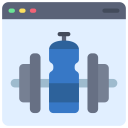Start Strong: Essential Tips for Customizing Beginner Fitness Regimens
Know Your Starting Point
Try a talk-test walk, ten bodyweight squats, and a gentle plank. Note breathing, stability, and comfort. These quick checks calibrate starting intensity and spotlight areas to strengthen without intimidation.

Set Goals That Fit You
Transform “get fit” into “walk briskly twenty minutes, four days weekly, for eight weeks.” Clear targets guide choices, simplify tracking, and make every small win obvious—and motivating.
Set Goals That Fit You
Adopt the mindset “I am someone who moves daily.” Tiny, consistent actions—like lacing shoes after breakfast—reinforce identity, making your customized routine feel natural rather than negotiated every morning.



Match Activities to Your Mood
Hate running? Try rhythm-based walking, low-impact dance, or cycling to playlists you love. Joyful movement sustains effort longer, turning exercise from a chore into a stress-diffusing ritual you anticipate.

Home, Gym, or Outdoors—Your Choice
Customize your space. At home, use resistance bands and a mat; outdoors, embrace parks and hills; in the gym, leverage machines for guidance. Your preference determines long-term consistency.

Build a Personal Soundtrack
Create playlists that cue warm-up, peak effort, and cooldown. Music sets rhythm and intention, subtly guiding pace while making each session feel curated just for you.

Structure a Beginner-Friendly Week
Start with three cardio sessions, two strength days, and one active recovery day. Keep sessions short initially. This mix covers heart health, muscle building, and restoration without overwhelming your calendar.
Structure a Beginner-Friendly Week
Increase only one variable at a time: time, intensity, or complexity. For example, add two minutes to walks this week, then introduce light hills next week. Steady tweaks preserve momentum and joints.
Master Five Foundational Moves
Squat, hinge, push, pull, and carry. Practice with bodyweight first, focusing on posture and control. When form feels smooth, add resistance progressively. Filming one set can reveal helpful tweaks.
Warm-Up and Cooldown Your Way
Customize a five-minute warm-up: brisk walk, arm circles, hip hinges. Finish with gentle stretches and breathing. Personal rituals reduce anxiety and cue your body that effort—and calm—are coming.
Equipment Without the Clutter
Start with a mat, a medium resistance band, and adjustable dumbbells. These versatile tools support countless beginner variations, letting you tailor intensity without a crowded room or complicated machines.
Aim for protein at each meal, colorful produce, and whole-grain carbohydrates around workouts. This steady fuel stabilizes energy, supports muscle repair, and keeps cravings manageable on busy training days.
Fuel and Recover for Beginners
Track, Adapt, and Celebrate
Record duration, perceived effort, mood, and one note about form. This tiny habit reveals patterns quickly, guiding smarter adjustments than any one-size-fits-all template ever could.
Track, Adapt, and Celebrate
Differentiate soreness from pain, fatigue from burnout. If energy drops persistently, scale intensity or volume for a week. Responsiveness is not quitting; it’s customizing with wisdom and compassion.
Track, Adapt, and Celebrate
Comment with your first-week plan or a small victory—like choosing stairs or finishing stretches. Subscribe for beginner checklists and join our discussion threads to troubleshoot plateaus together.
